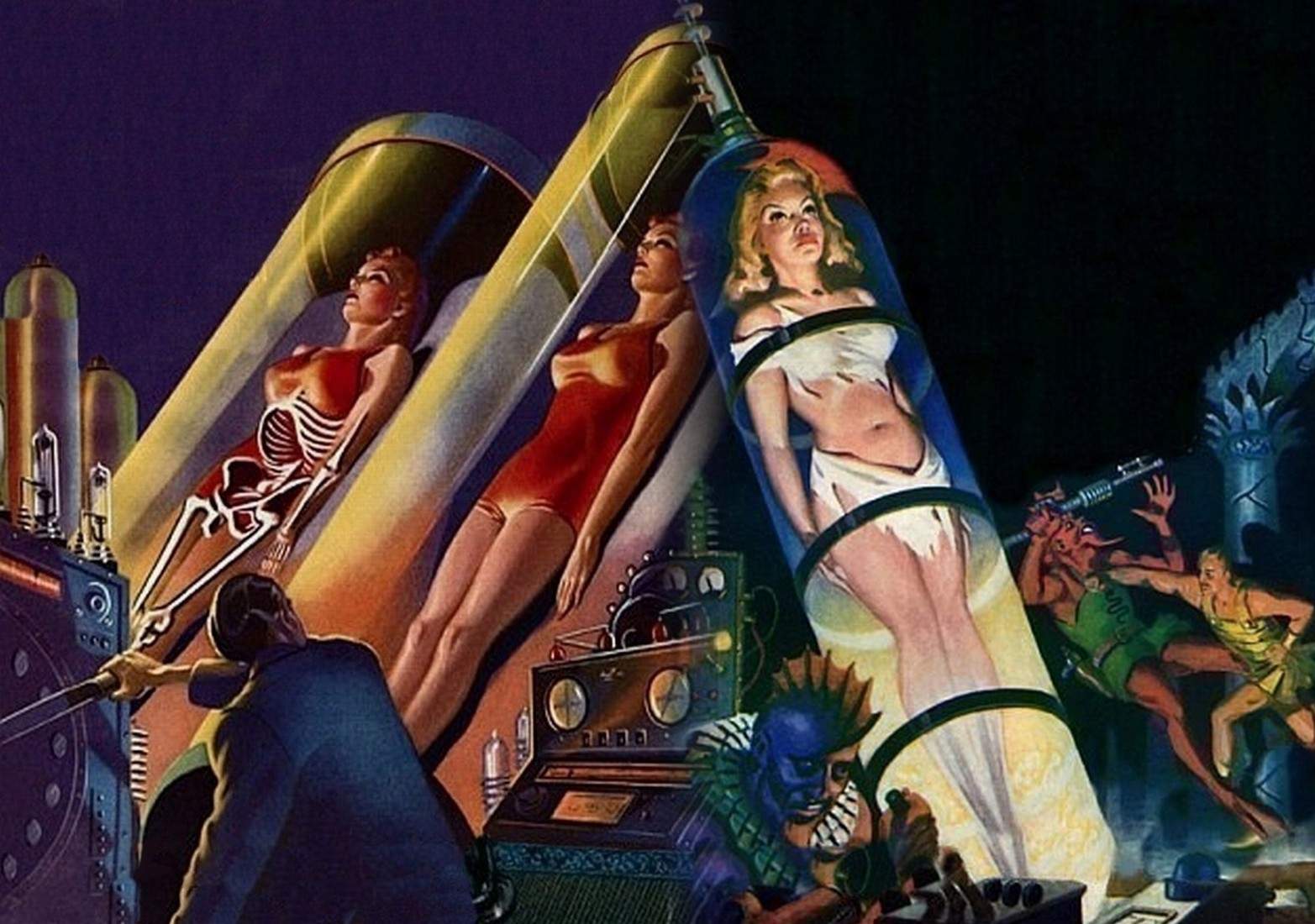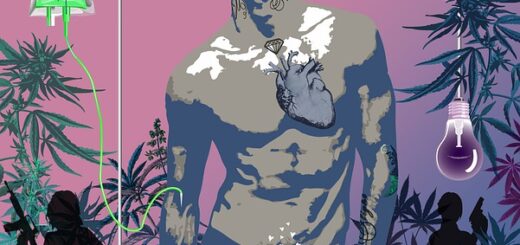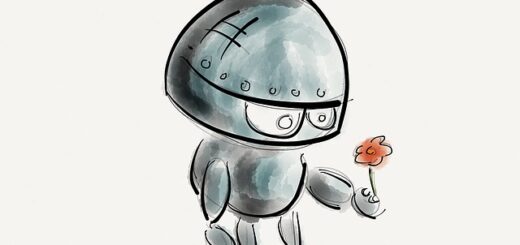Making the Leap by John Sheirer

Making the Leap by John Sheirer
“Go away,” Wendy Distoff mumbled as the knock on her door arrived just before three a.m., right around the time she seriously considered dropping out of graduate school at MIT and going to work at her father’s dairy farm in Northern Vermont.
Wendy was upset because the numbers didn’t work. Again.
She’d felt like an outsider growing up on that farm, not sure she fit in anywhere, but she knew her father loved her even though he didn’t always understand her. He assured her that she always had a place with him. The last time they spoke on the phone, he had suggested coming home in time for the total solar eclipse the following spring, and Wendy admitted to herself that the prospect of watching with her father as the moon passed over the sun above the open field and distant mountains was tempting.
But she needed to do something before she could go home. She needed to figure out the math.
“No, no, no!” Wendy moaned, ignoring the second knock, unable to balance the equations for the three hundred twenty-seventh time in the past four months. Her ancient Sponge Bob t-shirt and baggy black sweatpants stuck to her clammy skin. She slammed her last functional laptop closed. Dust wafted from the paint-flaked door propped on milk crates she used as a desk. She hung her head of unkempt, spiky hair in the swirling cone of desk lamp light that sliced the darkness of her basement apartment in one of Boston’s seediest neighborhoods.
The knocking came a third time. Wendy vaguely considered answering the door. Nothing was going right. Whatever distraction lay beyond her door, be it opportunity or disaster, might be a welcome change.
Her dissertation was already a year late, and her advisor was sending weekly emails. The lengthy epistles offering advice and encouragement had dwindled to terse notes about the consequences of further delay. This morning’s missive was just five words: “Your funding will be cut.”
The fourth round of knocking began, and Wendy puffed air from her lungs. Dad’s cows would be pleasant company, she thought. They’re so calm and real, just like her dad. They make sense. The math predicting the eclipse makes sense.
What made no sense was the difficulty she was having with the math behind her big idea. It was an idea so big that she didn’t need any other ideas, just this one, an idea beyond simply completing her dissertation, but a leap forward that would redefine magnetism, revolutionize energy production, and change the world. If she could just get the last, tiny, pivotal chunk of math to work.
When the knocking commenced a fifth time, Wendy jumped from her ancient, duct-taped office chair found in a dumpster seven semesters ago on university move-out day.
“Just a damned minute!” she hissed.
She barely glanced at the disorder of pizza boxes, take-out containers, and empty energy drink cans decorating her apartment floor. She stood too quickly for her churning stomach, and her head swam as she stumbled toward the door. Her back ached as if her twenty-five years on Earth had somehow tripled. She pressed her hot face to the cold, metal door and spied through the peephole a lone figure in the hallway staring placidly back.
The person could have been her twin. Gray eyes and sandy hair, slender, downturned mouth in an unintentional scowl. But this person looked two decades older, the eyes drooping just a bit, more well-nourished to fill out her white lab coat, and definitely not someone who had been awake for three days straight in a desperate battle to tame mathematics so wild it could throw the most seasoned bronco rider with a single buck.
Against what was left of her better judgment, Wendy threw open the four deadbolts and swung the door wide.
“What!?” she snapped.
The person lifted the corners of her mouth so slightly that Wendy almost didn’t notice.
“Wendy Distoff,” she said, not a question. “I’ve been trying to find you for so long.”
“Me?” Wendy said. “Why? Do I owe you money?”
The woman chucked. “No. I owe you. But we don’t have time to chat.” She strode into the apartment before Wendy could react, expertly maneuvering through the scattered detritus of Wendy’s life. “You might not believe what I have to tell you, but you need to listen.”
Wendy watched the woman for a long second before shutting the door and relatching just one deadbolt. She didn’t exactly trust this visitor, but what did she have to lose?
“Okay,” the visitor said before exhaling a long breath. “Here goes. I’m from twenty-one years in the future. You’ve probably already guessed who I am. I came back with an offer. Come with me to the future now, and you’ll see that you fixed the equations and solved the problem. You’re already so freaking close! Your idea worked. You changed the world. But that’s only in my timeline. If you don’t come with me, everything here stays the same. And, believe me, that future isn’t one Wendy Distoff would enjoy.”
Wendy leaned back against the door and stared at the familiar stranger. Her mind spun in overdrive, as fast as the last three Red Bulls could push it. She thought about arguing. She considered quizzing the visitor to test her knowledge. She wondered if she could get to the steak knife in her tiny kitchenette and if she would have the guts to use it. She stifled a laugh. Then she just stared some more.
The woman spoke quickly. “Not a lot of time here, Wendy. What’s it going to be? The future or the cows?”
Wendy’s eyes widened. “Did I finish my degree?”
The time traveler laughed. “Dude, you saved the world! They gave you, like thirty-seven doctorates!”
Wendy sighed. The cows wouldn’t miss her. Her father would, but he’d want her to do the right thing. She only had seven dollars in her bank account and 200 milligrams of liquid caffeine in the fridge. It was now or never.
“How?” she asked.
Future Wendy smiled and held her hands palms up. “Just say ‘yes.’”
“Yes,” present Wendy said, no hesitation.
Future Wendy closed her eyes with relief, shimmered for a few seconds, and then blinked into nothingness. The dingy apartment dissolved into an expansive, bright, industrial room busy with technicians in white coats. Wendy was reminded of the university labs when she was supposed to be there, in the daylight with supervisors and other students, not when she usually snuck in at night with the key she had pilfered from a janitor three years ago.
Or was that eighteen years ago? Wendy thought.
All the people in white coats stopped what they were doing and broke into applause. Their faces were stunned with awe, as if Wendy weren’t the basement-dwelling failure she feared herself to be.
When the cheering finally subsided and everyone returned reluctantly to their work at various transparent, hovering displays, Wendy’s father stepped out from the sea of lab coats. He was all flannel and denim and moist eyes, just as she remembered. His hair had grayed, and his smile produced a few extra lines around the eyes. Wendy touched her own eyes and felt the beginnings of wrinkles she saw on her future self.
“Glad you could convince yourself this time.” He stepped close and hugged her. Then he whispered, “There’s an eclipse in Colorado coming up next year, 2045. With your invention, they say we can fly there in five minutes. You up for that?”
* * * * THE END * * * *
Copyright John Sheirer 2024




Lovely vignette, John. What truth was revealed to present Wendy in the future, and why was it important that she venture into the future? The readers are left to answer those questions for themselves, a mark of any good fiction. Nice one, John.
Thank you, Bill!